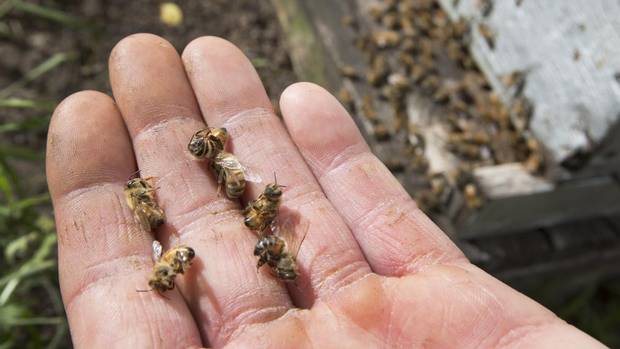
Ontario to Restrict Use of Pesticide Linked to Bee Deaths
The Ontario government plans to restrict the use of a class of agricultural pesticides linked to the widespread declines in honeybees and other pollinators.
The move is opposed by the province’s chemical and agriculture industries, which say neonicotinoid pesticides are vital tools that growers of corn and soybeans use to protect their harvests from yield-destroying insects.
The pesticide, which renders plants toxic to pests, has been blamed for the deaths of honeybees and other beneficial insects that are responsible for pollinating one-third of the food we eat.
November 25, 2014 | Source: The Globe and Mail | by Eric Atkins
The Ontario government plans to restrict the use of a class of agricultural pesticides linked to the widespread declines in honeybees and other pollinators.
The move is opposed by the province’s chemical and agriculture industries, which say neonicotinoid pesticides are vital tools that growers of corn and soybeans use to protect their harvests from yield-destroying insects.
The pesticide, which renders plants toxic to pests, has been blamed for the deaths of honeybees and other beneficial insects that are responsible for pollinating one-third of the food we eat.
The province said on Tuesday it wants to reduce the acreage planted with neonic-treated seeds by 80 per cent within two years.
To do so, the government is proposing to restrict the sale of corn and soybean seeds treated with neonics to farmers who can show their fields are susceptible to pests, verified by a third party. Farmers must also complete pest management training and document their efforts to eliminate pests such as wire worms and grubs.
The proposals will be subject to public consultations and in place by July 1, which is when growers begin buying seed and supplies for the following growing season.
Ontario would become the first province or state in North America to regulate the pesticides, which are halfway through a two-year moratorium in Europe amid concerns over environmental impacts.
“We know, and farmers recognize, there are risks associated with the use of neonicotinoid pesticides. We also know that, in certain circumstances, they are an important tool for farmers and help to increase production and maintain a reliable food supply for our province,” said Jeff Leal, Ontario’s Minister of Agriculture.
